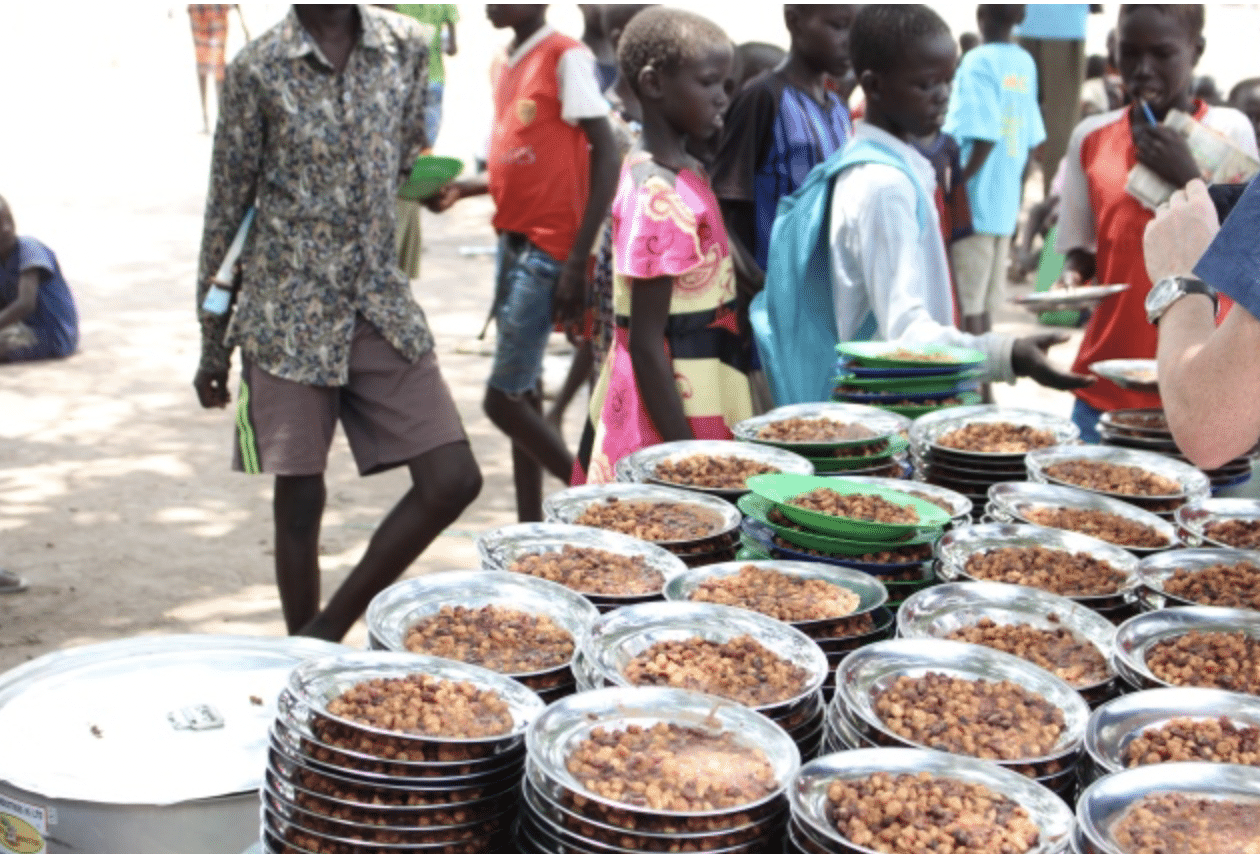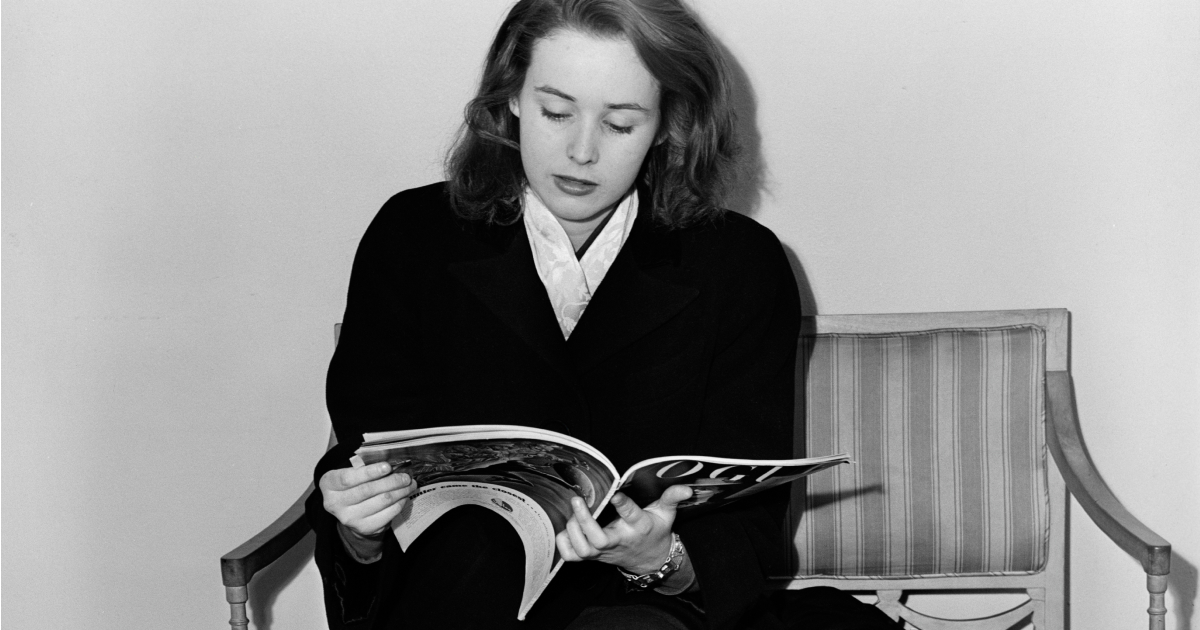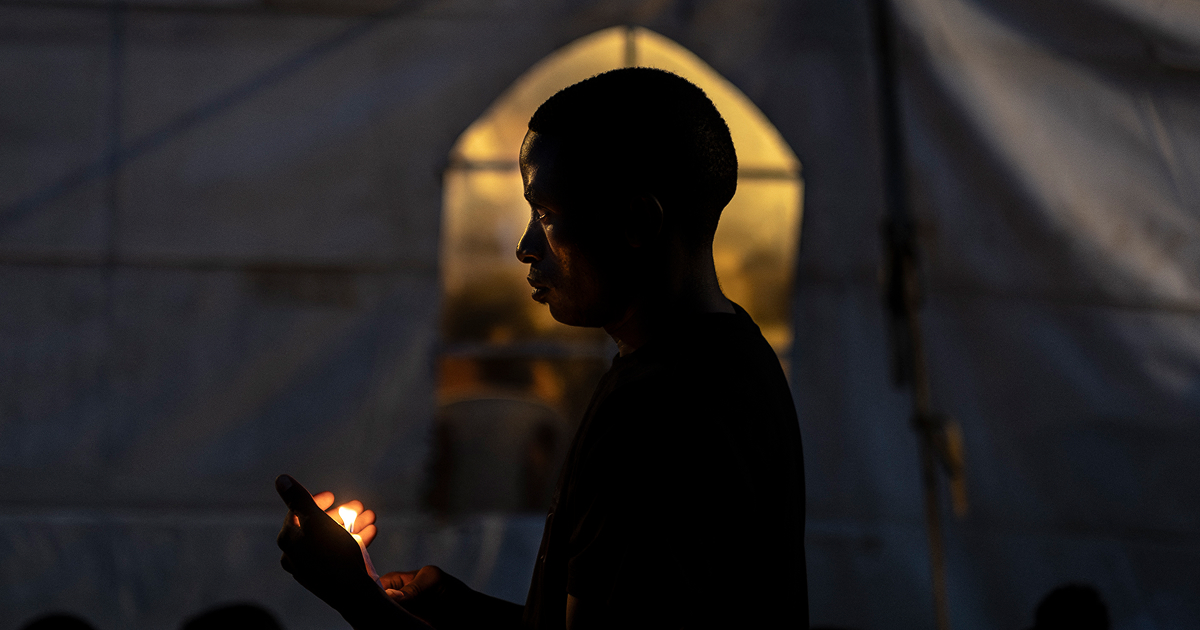There are few, if any, authors more firmly associated with Christmas than Charles Dickens. He may not have been, as the movie suggests, the man who invented Christmas, but he certainly changed the way we see it.
For Dickens, Christmas was the greatest Christian feast: it was also one of his greatest themes. According to one critic, it is “sunk into his imagination like a watermark”. It is no surprise then that Scrooge learns not simply to treat other people with dignity in A Christmas Carol but also “to keep Christmas well”.
Much of the success of A Christmas Carol stems from the original Christmas story that shadows it. The true hero of Dickens’ tale is Tiny Tim, the boy who dies and then comes back to life in Stave 5. It is he who finally converts Scrooge from misanthropy to love. Just as Christmas derives all its power, beauty, and joy from Jesus, the greatest child of all, so too does A Christmas Carol draw its power from this Christ-like child.
I had only a dim sense of this power as a child. Growing up in Rochester, I preferred the story of Oliver Twist. Every year, I walked the streets barefooted, with soot on my face and my clothes torn. It was all an act, of course – the annual Dickens Festival encouraged such behaviour – but I gradually came to realise that it was an important act. It was my introduction to the children of Dickens’ imagination. It prepared me for the books themselves, which I read, and then taught, as an adult. Over time, I discovered David Copperfield, Pip in Great Expectations, and, inevitably, Tiny Tim. They are all wonderful literary creations.
But that, in a sense, was the problem. I let them escape from the books so they could take up residence in my imagination, but I didn’t allow them to travel any further. I didn’t allow them to challenge me.
That was never Dickens’ intention. He wanted his characters to run free. He wanted them to live inside and beyond the covers of his books. He wanted them to change the world. Because Dickens, of course, was a social reformer. He wrote A Christmas Carol partly in response to the horrors he had read about in the second report of the Children’s Employment Commission and partly to address the child poverty he saw with his own eyes.
It is easy to ignore Dickens’ reforming aims. We often tame his characters, preferring to have them sit serenely on a shelf or entertain us on our screens. We don’t want them to change us, as Tiny Tim changed Scrooge.
But Christmas is the time when everything changes. God comes into the ordinary extraordinarily. And, as he changes lives, the miracle of Christmas ripples on to others. The birth of a child in Bethlehem two thousand years ago transforms the lives of children across the world today.
We see some of these ripples in the work of Mary’s Meals, a charity which began with the words of a child. A 14-year-old boy called Edward told Magnus MacFarlane-Barrow that his ambitions in life were to have enough food to eat and to go to school one day. Hearing those words changed Magnus’s life and, as a result, the lives of millions of children.
A child’s words helped Magnus find a simple solution to world hunger. He realised that he could help children like Edward by working with local communities to provide children with a meal a day in their place of education. Together, they could meet children’s immediate need for food while also enabling them to access the education that could be their route out of poverty. In 2002, Mary’s Meals started feeding 200 children in Malawi. Today the charity is feeding 2,429,182 children in 17 countries across the world. I think Dickens would have approved.
As a child, I enjoyed the spectacle of the Dickens Festival and the excitement of dressing up as Oliver Twist. As a student and teacher, I grew to love Dickens’ writing: his powerful characterisation; his amazing writing technique; his humour. But today, when I read about Pip or David Copperfield or Tiny Tim, when I enter into their sorrows and joys, I also remember Edward. I am reminded that the problems Dickens knew are problems we still see in the 21st century. But I also remember that the solutions Dickens wrote about so beautifully are also solutions that work for us today. School + food = hope. It’s as simple as that.
So, here’s a thought for Christmas. Next time we read or watch A Christmas Carol, let us reach out to the next hungry child. Let’s help the 67 million children who are out of school today because of poverty. Those children are still living their stories: this Christmas, we can help them find a happy ending.
(Photo: Mary's Meals in South Sudan courtesy of Mary's Meals)
There are few, if any, authors more firmly associated with Christmas than Charles Dickens. He may not have been, as the movie suggests, the man who invented Christmas, but he certainly changed the way we see it.
For Dickens, Christmas was the greatest Christian feast: it was also one of his greatest themes. According to one critic, it is “sunk into his imagination like a watermark”. It is no surprise then that Scrooge learns not simply to treat other people with dignity in <em>A Christmas Carol</em> but also “to keep Christmas well”.
Much of the success of <em>A Christmas Carol </em>stems from the original Christmas story that shadows it. The true hero of Dickens’ tale is Tiny Tim, the boy who dies and then comes back to life in Stave 5. It is he who finally converts Scrooge from misanthropy to love. Just as Christmas derives all its power, beauty, and joy from Jesus, the greatest child of all, so too does <em>A Christmas Carol </em>draw its power from this Christ-like child.
I had only a dim sense of this power as a child. Growing up in Rochester, I preferred the story of Oliver Twist. Every year, I walked the streets barefooted, with soot on my face and my clothes torn. It was all an act, of course – the annual Dickens Festival encouraged such behaviour – but I gradually came to realise that it was an important act. It was my introduction to the children of Dickens’ imagination. It prepared me for the books themselves, which I read, and then taught, as an adult. Over time, I discovered David Copperfield, Pip in <em>Great Expectations</em>, and, inevitably, Tiny Tim. They are all wonderful literary creations.
But that, in a sense, was the problem. I let them escape from the books so they could take up residence in my imagination, but I didn’t allow them to travel any further. I didn’t allow them to challenge me.
That was never Dickens’ intention. He wanted his characters to run free. He wanted them to live inside and beyond the covers of his books. He wanted them to change the world. Because Dickens, of course, was a social reformer. He wrote <em>A Christmas Carol</em> partly in response to the horrors he had read about in the second report of the Children’s Employment Commission and partly to address the child poverty he saw with his own eyes.
It is easy to ignore Dickens’ reforming aims. We often tame his characters, preferring to have them sit serenely on a shelf or entertain us on our screens. We don’t want them to change us, as Tiny Tim changed Scrooge.
But Christmas is the time when everything changes. God comes into the ordinary extraordinarily. And, as he changes lives, the miracle of Christmas ripples on to others. The birth of a child in Bethlehem two thousand years ago transforms the lives of children across the world today.
We see some of these ripples in the work of <a href="https://catholicherald.co.uk/uk-charity-marys-meals-is-feeding-2-5-million-vulnerable-children-and-it-needs-your-help/" title=""><strong>Mary’s Meals,</strong></a> a charity which began with the words of a child. A 14-year-old boy called Edward told Magnus MacFarlane-Barrow that his ambitions in life were to have enough food to eat and to go to school one day. Hearing those words changed Magnus’s life and, as a result, the lives of millions of children.
A child’s words helped Magnus find a simple solution to world hunger. He realised that he could help children like Edward by working with local communities to provide children with a meal a day in their place of education. Together, they could meet children’s immediate need for food while also enabling them to access the education that could be their route out of poverty. In 2002, Mary’s Meals started feeding 200 children in Malawi. Today the charity is feeding 2,429,182 children in 17 countries across the world. I think Dickens would have approved.
As a child, I enjoyed the spectacle of the Dickens Festival and the excitement of dressing up as Oliver Twist. As a student and teacher, I grew to love Dickens’ writing: his powerful characterisation; his amazing writing technique; his humour. But today, when I read about Pip or David Copperfield or Tiny Tim, when I enter into their sorrows and joys, I also remember Edward. I am reminded that the problems Dickens knew are problems we still see in the 21<sup>st</sup> century. But I also remember that the solutions Dickens wrote about so beautifully are also solutions that work for us today. School + food = hope. It’s as simple as that.
So, here’s a thought for Christmas. Next time we read or watch <em>A Christmas Carol</em>, let us reach out to the next hungry child. Let’s help the 67 million children who are out of school today because of poverty. Those children are still living their stories: this Christmas, we can help them find a happy ending.
<em>(Photo: Mary's Meals in South Sudan courtesy of Mary's Meals)</em>


















